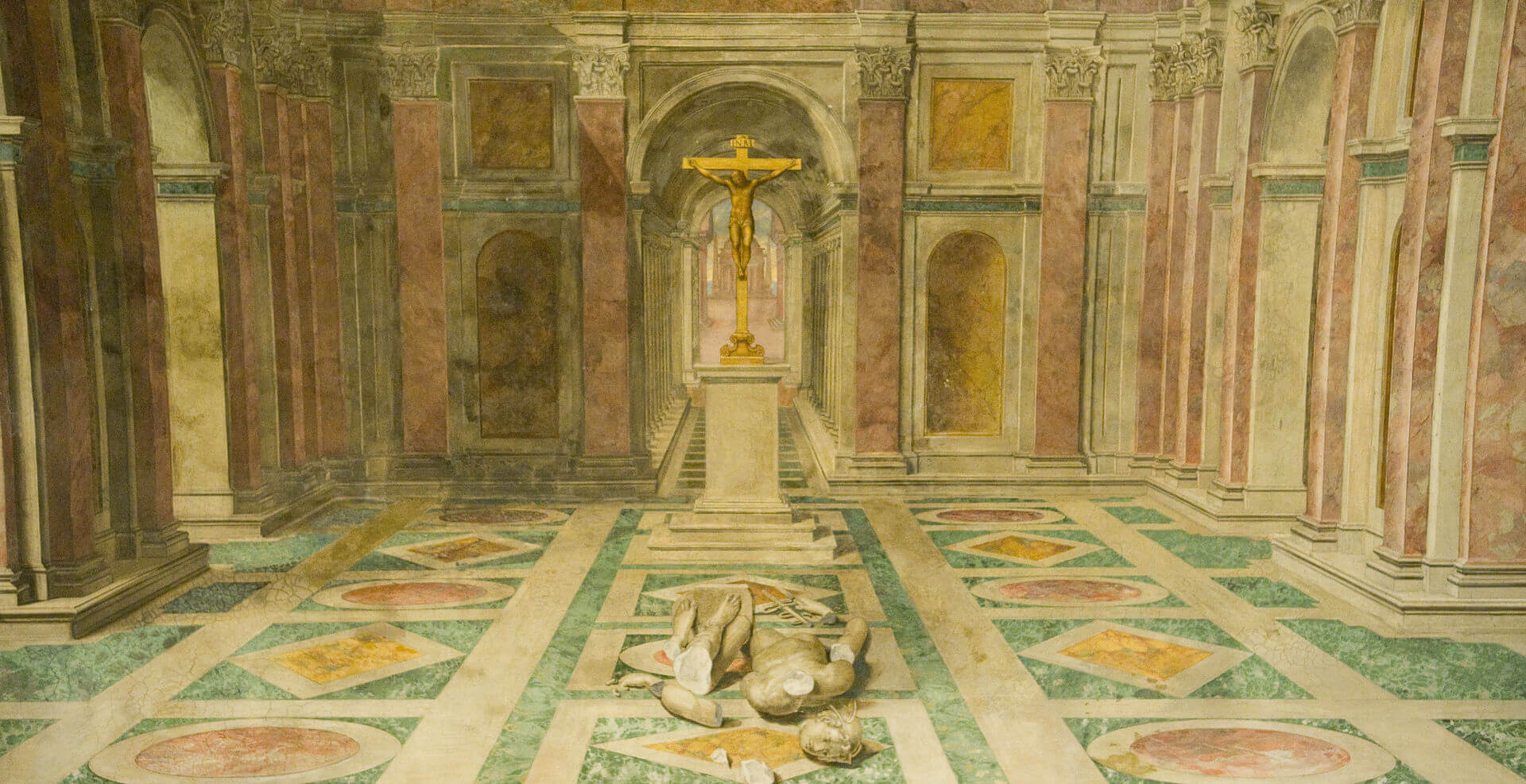Christianity is the religion of love. God reveals Himself to the world as Love. Christianity is sacrificial love. Here, God establishes the principle of eternal existence through love, by offering Himself as a sacrifice. Before this mystery—God’s crucifixion for the sake of humanity—those who witnessed it trembled in awe and wonder, seeing the abyss of divine Love—boundless as existence itself.
The Apostle John the Theologian, in his Gospel, reveals to the world the new name of God—Love. The Lord, in His final discourse, commanded His disciples to love one another. To abide in love is to abide in God. Love is the mysterious sword that separates the disciples of Christ from the disciples of the devil. Love is the heavenly fire that Christ brought to earth; it is that fire that must transform humanity. Without the fire of love, the human soul remains cold like a corpse. St. John the Theologian, at the end of his earthly life, continuously repeated the words: “Children, love one another—for this is everything.”
Christianity conquered the world with love: the heart of the pagan world was captivated and won over by the power and beauty of love. The pagan world, when it encountered Christianity, sensed that love is light and life. As long as the hearts of Christians burned with love, the Church triumphed. During the fiercest persecutions, it was through love that the Church overcame its persecutors, revealing the greatness and mystery of Christianity.

Love manifests as the criterion of our faith. True faith reveals itself through love and mercy, which are inseparable from it, just as heat and light are inseparable from fire. When faith weakens, hope fades, and love disappears. Therefore, those who lack love yet consider themselves Christians deceive themselves. Their faith is illusory. They see themselves as followers of Christ, but they lack the most essential aspect—the Spirit of Christ.
The pagan world could not withstand the power of Christ’s love. But when that love began to diminish in the hearts of people, the pagan world seemed to come alive again. And not only does the Church face persecutions similar to those of the early centuries, but paganism also infiltrates the very minds of Christians, distorting Christ’s teachings and reducing Christianity to mere form—like a tree that bears fewer and fewer fruits.
Why has the love of Christians grown cold?
The beginning and the end of spiritual decline is pride. But pride takes many forms. Pride approaches even what is good, like a deadly thorny bush that wraps itself around the tree, feeding on its sap and drying its roots. Pride gives birth to selfishness and self-centeredness, which are, in reality, unnatural love for oneself. Pride in religion takes the form of rationalism and ecstatic fervor. Pride leads to faith in one’s own intellect as a universal tool of knowledge, manifesting as perpetual reformism. Pride can appear as the destruction of structures—anarchy—or, conversely, as the centralization of structures—imperialism and dictatorship. The loss of love reveals itself as spiritual coldness, indifference toward others, and the elevation of oneself over others through violence.

The proud person views others as mere tools to achieve his goals—primarily the fulfillment of his passions. For him, others lose their inherent value. Pride produces tyrants and slaves. Pride divides and alienates people from one another. The proud person believes the world exists solely for him, imagining himself as the center around which all people must revolve, like planets around a star.
The Christian family is active love, which grows through mutual service to one another. In our time, each member of the family desires only to be served, so the family becomes an invisible battlefield for constant struggles for power and dominance. The proud person always desires more than what is given and feels offended when others do not acknowledge his imagined superiority. That is why families tragically fall apart, like a glass vase shattered into pieces by the blow of a hammer, leaving behind only shards.
People no longer find joy in one another. Relatives fail to find time to see each other. Christians celebrate their feasts without spiritual joy, as if fulfilling some obligation. It seems as though the entire earth is covered by a gray, impenetrable fog.
Without love, the human soul dies, and thus modern people are deeply unhappy. Even religion, without love, becomes foreign and incomprehensible to the heart and soul.
What is the cause of the loss of love? It is a global process; it is the path to spiritual death. It is the greatest catastrophe of the last times, especially in our era—far more terrifying than the bloodiest wars and natural disasters. It is the dehumanization of man; he ceases to be a person and becomes merely a being. With the loss of love, selfishness and indifference find many reasons to thrive. Let us focus on one of them.
Only what is beautiful can be loved. What is ugly and disfigured can only be tolerated, but not loved. Love and beauty are intrinsically connected. Human education and tradition, no matter how imperfect, have always sought to preserve the beauty and nobility of the human soul. Tradition, customs, common decency, the elevation of chastity, and the readiness for sacrifice—all these were forms through which love was preserved. Now, the modern person mocks and destroys these traditions; moral principles are viewed as shackles in which humanity was historically imprisoned. In every era, there was an understanding of sin and vice, but they were regarded as evils and diseases that ate away at human society. Today, sin and vice no longer disturb people—what disturbs them is the condemnation of sin. For those who lived before the Flood, Scripture says, “they became flesh,” meaning the needs of the spirit disappeared, the feelings of the soul became corrupted, and the rule of the body began: man equated himself with his flesh and thus fell lower than all other living creatures.
When a person loses the beauty of their soul, they are incapable of love and cannot inspire love in others. The body becomes a dwelling place for instincts and dark passions. Passions are repulsive; one may indulge in them, but cannot love them. Therefore, when people lose beauty, they lose love. Lies, slander, the demonic world of drugs and alcohol, fornication and debauchery in their most shameless forms—they all rob people of their image (their sense of dignity). Thus, the distance between people grows, and emotional coldness turns the earth into a tomb inhabited by living corpses.

In purity lies spiritual light and joy, but in sin and vice—heaviness and spiritual darkness. The modern world seeks to strip humanity of its purity, to mock and destroy it. This is why the world has become foreign and empty for people. People no longer feel the pain of others, nor do they desire or know how to warm others with the warmth of their soul. People have become fearful of the world and protect themselves from others.
That loneliness, whether conscious or unconscious, that desert-like loneliness—is the greatest curse of our age.















